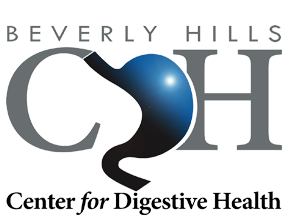Are You at Risk for Anal Cancer?
BOOK APPOINTMENTAnal Cancer By the Numbers
Over the last three decades, anal cancer cases in the U.S. have doubled. There are close to 7,000 cases of anal cancer every year here in the states. Not to be confused with colon or rectal cancer, anal cancer is mostly caused by the Human Papilloma Virus (HPV), which has hundreds of subtypes (has also been found to cause cervical cancer in women).
There are 1.2 million people in the U.S. infected with HIV. Half of men and about a fifth of women have HPV-related changes in the cells of the anus. These can develop into anal cancers over the course of years.
For Your Health
The New York State Department of Health recommends annual anal cancer screenings, especially for HIV-infected men and women. One problem is that there are no national screening guidelines. Availability of screening also differs throughout the country.
If you feel that you’re at risk for anal cancer, it’s important to get past any initial embarrassment. Have your doctor perform an anal pap smear.
Pap Smears Worked for Cervical Cancer
Cervical cancer has diminished significantly in the states due to pap smear implementation. HPV affects the anus the same as it affects the cervix, so any person at increased risk for anal cancer should get this simple test done. All it involves is your doctor inserting and brushing a swab inside the anal canal.
Your sample is then sent to a laboratory where we’ll check for virus subtypes which cause anal warts. We’ll track and note any changes in the cells in the lining of the anus. We identify and biopsy affected tissue, sending it to the pathology lab where we look for signs, pre-malignant cells, or cancerous cells which require additional treatment.
Now is not the time to be shy. It’s the time to stay healthy. If you feel that you are at increased risk for anal cancer, stay ahead of the problem. Contact Beverly Hills Center for Digestive Health. Call our office or visit our website to schedule your consultation today.
Our Blogs
Accurate Diagnostics for Anorectal Strength and Function
Back to BlogsAre you having problems producing healthy bowel movements? The problem may be the muscles around your digestive tract either not coordinating properly or lacking strength. To get your GI problems addressed as soon as possible, visit the Beverly Hills...
Pelvic Floor Dysfunction?
Back to BlogsPelvic floor dysfunction is the inability to relax and coordinate your pelvic floor muscles to allow for smooth defecation. Fortunately, there are treatments available, including biofeedback, medications, and physical therapy. Reclaim strength and comfort...
Cutting-Edge, Compassionate Care Can Help You Find Hemorrhoids Relief
Back to BlogsHemorrhoids can be debilitating and painful, but treatment is available. If you’re suffering from hemorrhoids, make an appointment at the Beverly Hills Center for Digestive Health. We offer cutting-edge, compassionate care to help you find hemorrhoids...
Call to Schedule
Our office is available to answer your questions and evaluate your symptoms.

Phone
(310) 855-0222
Fax: (949) 404-6467
Hours
Mon - Fri: 9am – 5pm
Sat - Sun: Closed